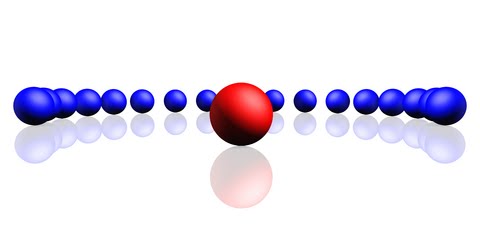 |
| Nancy Forrester's Secret Garden Key West, Florida |
Operating on exactly the same set of facts and circumstances, many people think that the economy has made us creative and willing to change. That politics as usual has made us aware of our responsibilities to pay attention and get involved. That government has made us safer. That Big Money can buy air time and print space, but it can't change people's hearts and minds.
To be honest, a lot of us would concede that at different times, we've seen the same things both ways, sometimes hopeless, and sometimes hopeful.
Is any view more or less "true" than the others? Aren't all the ideas that seem so true to each of us coming from our individual interpretations of common information and experience? Don't we each create our own unique perceptions by filtering ideas through our own consciousness? Can anything external make us interpret life one way or another? Don't we think for ourselves and see things differently at different moments in time?
Consciousness is the link betwen the myriad thoughts that constantly flow through our minds and the way we understand them and relate to them. But it's invisible to us because we are immersed in it. We talk blithely about people who seem to live in a "higher consciousness" or about "levels of consciousness," as though consciousness were some abstract concept that had nothing to do with our ordinary lives. Yet it has everything to do with every single experience we have because consciousness is both our awareness of the formation of ideas and of what those ideas mean to us. In other words, Consciousness generates the "reality" we experience, given the thoughts that are passing through our minds. Consciousness is the illusionary garden in which we grow and harvest our life. Thoughts are the illusionary plants we grow. When our consciousness is bleak and desolate, the plants appear sparse and sickly. When our consciousness is bright and spirited, the plants appear lush and lively. The interior, illusionary landscape of our reality changes according to the state of our consciousness, which is ever-changeable.
Sydney Banks, in The Missing Link (p. 40), put it this way: "As our consciousness descends, we lose our feelings of love and understanding, and experience a world of emptiness, bewilderment and despair. As our consciousness ascends, we reagin purity of Thought, and, in turn, regain our feelings of love and understanding."
The way life looks to us is the clue we are given not to the way life actually is, but to the state of our consciousness at any given moment. We assess life through our own consciousness. When things appear grim, we can assume that things are, indeed, grim and we are the helpless victims of the circumstances we see. Or we can recognize that we're in a temporary descent, and not take appearances to heart, knowing that optimism, high spirits and freedom will return if we don't take negative appearances seriously. Just that understanding, knowing that consciousness offers us an automatic guidance system to help us through life, sets us free to "ascend," to allow our feeling state to lift. We can rise gratefully, unfettered, and we can fall gracefully, unafraid.
Ascending consciousness is the lush garden of hope. If we tend the garden of our own consciousness, we find the wisdom to tend to our lives and make the most of our dreams.
